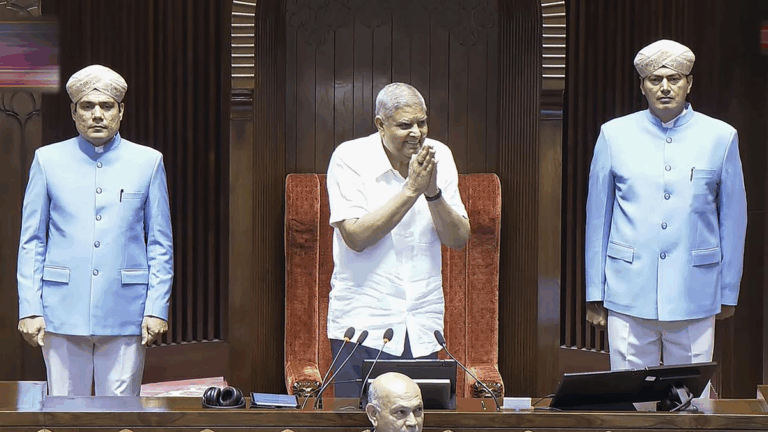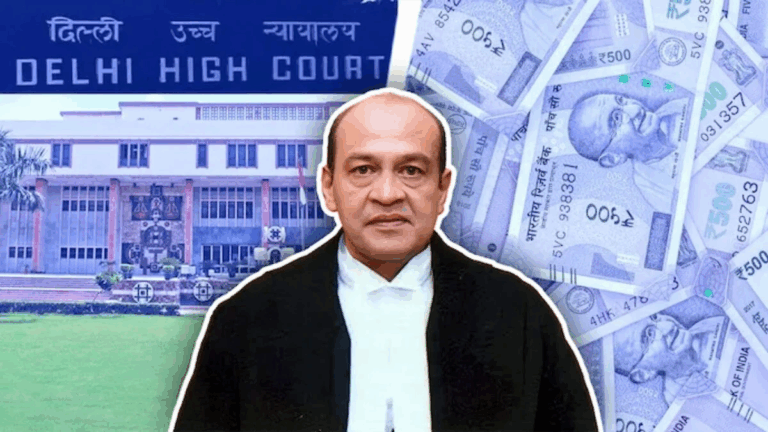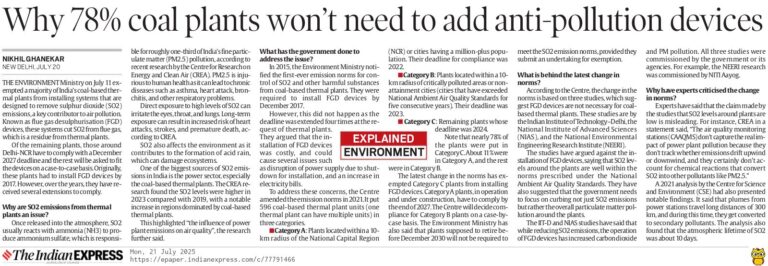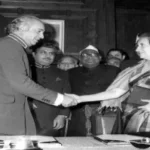Minimum Support Gained to Move for Removal of Justice Varma
Why in the News?
Union Minister Kiren Rijiju announced that over 100 Members of Parliament (MPs) in the Lok Sabha have signed a notice for initiating the removal (impeachment) process against Justice Yashwant Varma of the Allahabad High Court. The motion, following an indictment by a committee of High Court judges over a serious allegation, is now eligible to be tabled in Parliament.

Background
- Under Article 124(4) of the Indian Constitution, a High Court or Supreme Court judge can be removed for proven misbehaviour or incapacity through a parliamentary process.
- The Judges (Inquiry) Act, 1968, lays down the procedure:
- Requires a notice of motion signed by at least 100 MPs in the Lok Sabha or 50 MPs in the Rajya Sabha.
- Upon admission, a three-judge inquiry committee is constituted to investigate.
- Justice Yashwant Varma was previously a judge at the Delhi High Court.
- In March, half-burnt currency notes were recovered from his outhouse after a fire incident.
- A three-judge inquiry committee formed by then CJI Sanjiv Khanna recommended his removal after Justice Varma refused to resign.
- Justice Varma was transferred back to the Allahabad High Court and barred from judicial work. He has denied the allegations and challenged the findings in the Supreme Court.
Feature
Impeachment Motion Details:
- Over 100 Lok Sabha MPs have signed the notice to initiate impeachment.
- The Business Advisory Committee (BAC) will schedule the motion.
- The motion is likely to be taken up in the Lok Sabha first.
Constitutional Procedure:
- After notice, the Speaker or Chairperson admits the motion.
- A three-member inquiry committee (a Supreme Court judge, + Chief Justice of a High Court + eminent jurist) is constituted.
- If the committee finds the judge guilty, the motion must be passed in both Houses with a two-thirds majority of members present and voting.
Related Opposition Motion:
- CPI(M)’s John Brittas and CPI’s P. Sandosh Kumar highlighted a pending impeachment motion against another judge, Justice Shekhar Yadav, for alleged communal remarks.
- They urged Parliament to uphold secular constitutional values and proceed with both cases impartially.
Challenges
- Political Sensitivity: Impeachment of a judge is extremely rare and could lead to executive-judiciary tensions.
- Judicial Accountability vs Independence: Maintaining the fine balance between ensuring accountability and protecting judicial independence is complex.
- Public Trust: High-profile judicial controversies can undermine confidence in the judiciary.
- Selective Action Concerns: Delay in acting on Opposition-backed motions may raise allegations of bias or political selectivity.
Legal Delays: Justice Varma has challenged the findings in the Supreme Court, which could delay proceedings.
Way Forward
- Follow Due Process Rigorously: Parliament must proceed strictly by constitutional procedure to avoid legal or institutional challenges.
- Ensure Transparency: Make the inquiry committee’s findings available publicly to bolster public trust.
- Act on All Motions Equitably: Address pending motions, including against Justice Shekhar Yadav, to demonstrate institutional impartiality.
- Maintain Judicial Dignity: Parliamentary conduct must remain respectful and avoid politicising judicial proceedings.
- Strengthen Judicial Ethics Mechanisms: Reinforce internal judicial mechanisms (like in-house inquiries) to proactively deal with misconduct.
Conclusion
The move to impeach Justice Yashwant Varma signals a rare invocation of Parliament’s constitutional power to uphold judicial accountability. However, it is also a delicate test of India’s democratic balance between the legislature and judiciary. The outcome and how equitably it handles similar pending cases will reflect on the health of constitutional morality and institutional integrity.
MAINS PRACTICE QUESTION
Question: Does the initiation of impeachment proceedings against a High Court judge represent a commitment to judicial accountability, or does it risk politicising the independence of the judiciary?
FAQs: on the Impeachment Motion Against Justice Yashwant Varma
What are the allegations against Justice Yashwant Varma?
He is accused of financial impropriety after half-burnt currency notes were found in his outhouse during a fire incident. Justice Varma has denied the allegations and challenged the inquiry report in the Supreme Court.
Has Justice Varma been removed from office yet?
No. The impeachment process is ongoing. He has been transferred back to the Allahabad High Court and barred from judicial work, but final removal requires Parliament’s approval following due process.
Is this a common occurrence in Indian judicial history?
No, judicial impeachment is extremely rare in India. Only a few attempts have ever been made, and no judge has been removed through this process to date.
What is the Opposition saying in this matter?
MPs like John Brittas (CPI-M) and Sandosh Kumar (CPI) have pointed to another pending motion against Justice Shekhar Yadav for alleged communal remarks and demanded equal treatment of both motions to uphold secular and constitutional values.







